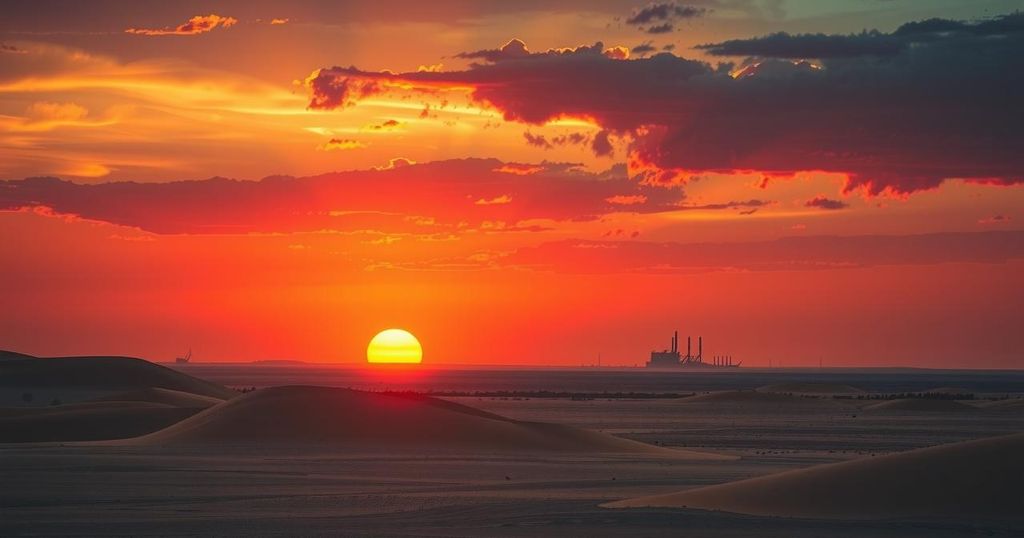Qatar’s Prime Minister warns that an attack on Iran’s nuclear plants could contaminate Gulf waters, threatening water supplies for the region. He emphasizes the dire consequences of such contamination for Gulf countries, expressing a commitment to pursuing diplomatic solutions while acknowledging Iran’s willingness to engage in talks. The broader geopolitical context, including U.S. relations with Iran, continues to influence these discussions.
Qatar’s Prime Minister, Sheikh Mohammed bin Abdulrahman bin Jassim Al Thani, has expressed grave concerns regarding potential attacks on Iran’s nuclear facilities along the Gulf coast. He indicated that such an assault could lead to catastrophic regional consequences, leaving countries without vital water resources. In his interview with Tucker Carlson, Sheikh Mohammed underscored the outcomes of simulations conducted by Doha, predicting that the sea would become “entirely contaminated,” leading to Qatar potentially running out of water within three days.
Despite efforts to enhance water retention via additional reservoirs, the Prime Minister emphasized the ongoing risks for all Gulf nations. He poignantly stated, “No water, no fish, nothing… no life,” highlighting the profound implications for regional stability. His warning coincided with U.S. President Donald Trump’s announcement inviting Iran to nuclear discussions, where he mentioned military action as a potential alternative if a peace deal could not be reached.
Situated about 190 km (120 miles) from Iran, Qatar, alongside other Gulf Arab states, relies heavily on desalination for water supply. Contamination of the Gulf waters could trigger severe humanitarian and economic crises. Although Iran houses a nuclear plant in Bushehr near the Gulf, the key uranium facilities are located further inland. Sheikh Mohammed pointed out that in addition to military concerns, Qatar harbors fears regarding environmental safety due to the risks associated with potential strikes on Iranian nuclear sites.
Reiterating Qatar’s stance against military action, the Prime Minister affirmed his commitment to pursuing diplomatic solutions between the United States and Iran. He noted that Tehran is “willing to engage” and is making efforts to reduce tensions, aspiring to restore relations within the region. Meanwhile, Western allegations accusing Iran of seeking nuclear weapons are firmly denied by Iran. In 2015, Iran had agreed to limit its nuclear activities in exchange for sanctions relief, but the U.S. exit from the accord in 2018 created uncertain prospects for future negotiations.
In summary, Prime Minister Sheikh Mohammed bin Abdulrahman bin Jassim Al Thani of Qatar has articulated significant concerns regarding the potential impacts of strikes on Iran’s nuclear facilities on the Gulf region’s water resources. His assertion that any such attack could lead to widespread contamination highlights the urgent need for diplomatic resolutions to prevent humanitarian crises. While expressing Qatar’s firm opposition to military intervention, he noted Iran’s willingness to engage in dialogue to foster regional stability.
Original Source: tribune.com.pk




